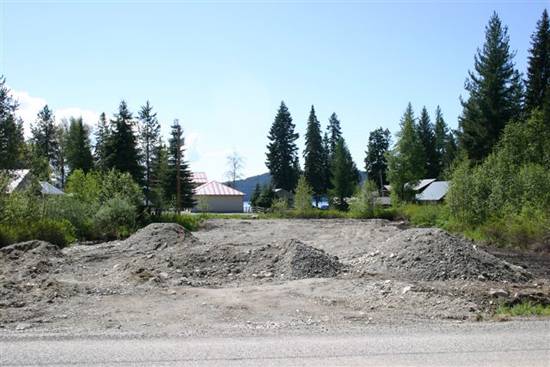Our thanks to the Volokh Conspiracy for tipping us off that SCOTUS decided Sackett v. E.P.A. earlier today. Unanimously, no less, with two concurring opinions. You can get the message about the nature of the case and the Court’s reaction from this excerpt from Justice Alito’s concurring opinion:
“The reach of the Clean Water Act is notoriously unclear. Any piece of land that is wet at least part of the year is in danger of being classified by EPA employees as wetlands covered by the Act, and according to the Federal Government, if property owners begin to construct a home on a lot that the agency thinks possesses the requisite wetness, the property owners are at the agency’s mercy. The EPA may issue a compliance order demanding that the owners cease construction, engage in expensive remedial measures, and abandon any use of the property. If the owners do not do the EPA’s bidding, they may be fined up to $75,000 per day ($37,500 for violating the Act and another $37,500 for violating the compliance order). And if the owners want their day in court to show that their lot does not include covered wetlands, well, as a practical matter, that is just too bad. Until the EPA sues them, they are blocked from access to the courts, and the EPA may wait as long as it wants before deciding to sue. By that time, the potential fines may easily have reached the millions. In a nation that values due process, not to mention private property, such treatment is unthinkable.”
So did the court grant property owners meaningful relief from this outrageous legal scheme? Don’t be hasty. Quoth Justice Alito:
“[T]he combination of the uncertain reach of the Clean Water Act and the draconian penalties imposed for the sort of violations alleged in this case still leaves most property owners with little practical alternative but to dance to the EPA’s tune.” Emphasis added.
We would have thought that the treatment meted out by the EPA to affected property owners was clearly unconstitutional on more than one ground (like due process and excessive fines, for instance), but the decision is based, not on the Constitution, but rather on the Court’s interpretation of the availability and timing of judicial review under the Clean Water Act, and Justice Alito’s opinion instead of calling for meaningful, effective relief, sends Sackett off on another costly and time-consuming round of litigation, and passes the buck to Congress to rectify the Act’s injustice. Some remedy.
We sympathize with property owners thrust into such a nightmarish scenario because back in 1980 we were involved in such a crazy case, in which our client started plowing bone-dry land for a new citrus grove, when he got served by the Feds with a cease and desist order demanding that he “cease dredging and filling in waters of the United States,” and beyond that, that he “halt any further work in waters of the United States” (emphasis added). We sued in federal court, the Feds made a motion to dismiss, but the trial court sat on it for so long that everybody decided life wasn’t long enough for this controversy to be judicially resolved, and so the case settled.
And why is the Clean Water Act “notoriously unclear’? Could its lack of clarity have something to do with the courts’ grudging interpretation of property owners’ right under it?
For the Washington Post’s take on this case, click here.
Bottom line: the Sackett decision is better than the alternative might have been, because from the outset, the environmetalits’ objrtive has been to destroy private property rights in America (except their own). You don’t believe us? Then check out Gladwin Hill, Authority to Develop Land Is Termed a Public Right, N.Y. Times, May 20, 1973 (“A federal task force in land use said today that henceforth ‘development rights’ on private property must be regarded as resting with the community rather than with property owners.”) Clear enough for you?
And so, we are glad to hear that Justice Alito thinks that our nation values property rights. Based on the Court’s most recent handiwork, you coulda fooled us on that one. But hey man, what do we know? Maybe Justice Alito will do some missionary work and persuade some his colleagues to value them as well.
Follow-up. And speaking of the court’s grudging interpretation of the Act, we offer for your consideration the following observation of Richard Frank, former California Deputy Attorney General, with whom we rarely agree, along with a photo of this asserted “wetland” from his blog:
 “Considering Scalia’s well-known propensity for lengthy opinions and rhetorical flourishes–especially when it comes to property rights claims and environmental regulation – the decision in Sackett is remarkably terse and narrowly crafted.” Indeed.
“Considering Scalia’s well-known propensity for lengthy opinions and rhetorical flourishes–especially when it comes to property rights claims and environmental regulation – the decision in Sackett is remarkably terse and narrowly crafted.” Indeed.